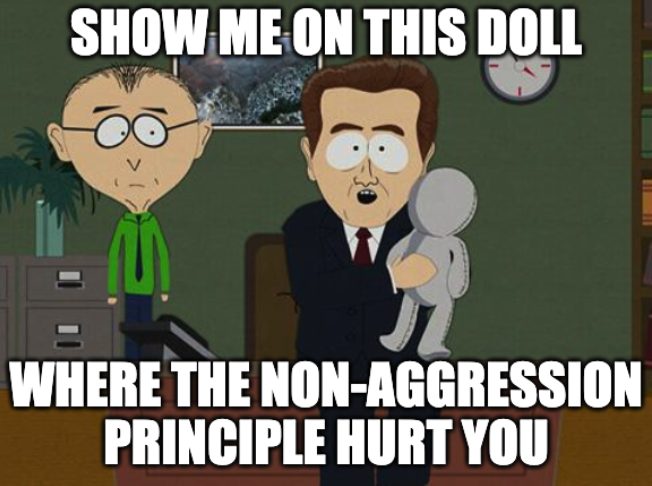The Non-Aggression Principle (NAP) is a foundational concept in libertarian philosophy and ethics. It serves as a guiding principle for interactions between individuals and as a basis for defining the limits of justifiable force and coercion in society. The NAP is at the core of libertarianism, shaping the way libertarians view government, property rights, and personal freedoms. This article explores the Non-Aggression Principle, its origins, its significance in libertarian thought, and its implications for society.
Origins of the Non-Aggression Principle
The concept of the Non-Aggression Principle has ancient philosophical roots and developed with Scholastic thinkers such as St. Thomas Aquinas with Natural Law theory and the School of Salamanca. However, the NAP, as it is understood in libertarianism today, gained prominence in the mid-20th century as part of the broader libertarian movement.
The NAP asserts that aggression, defined as the initiation of force or coercion against another individual or their property, is inherently immoral. It places a strong emphasis on self-ownership, individual autonomy, and the right to personal property. According to the NAP, individuals are free to act as they choose, so long as their actions do not infringe upon the equal rights of others.
Significance in Libertarian Thought
- Individual Liberty: The NAP is the bedrock of libertarian thought, emphasizing individual liberty as the highest moral value. It asserts that individuals have the inherent right to live their lives as they see fit, free from aggression or coercion by others, including the government.
- Property Rights: The NAP also underpins the concept of property rights. Libertarians argue that individuals have the right to acquire, use, and exchange property without interference, provided they do not violate the property rights of others. This extends to the idea that taxation without consent is a form of theft, as it involves the confiscation of property.
- Limited Government: Libertarians often advocate for minimal government intervention in society, with the NAP as the ethical basis for this stance. They argue that government should exist solely to protect individual rights and property, refraining from initiating force or coercion against its citizens.
- Voluntary Interactions: The NAP promotes voluntary interactions and transactions among individuals. In a society guided by this principle, exchanges occur through mutual consent, fostering cooperation and reducing the potential for conflict.
Implications for Society
The NAP raises important questions and challenges in various areas of public policy and social ethics:
- Self-Defense: The NAP recognizes the right to self-defense. Individuals have the moral right to protect themselves and their property from aggression. This principle supports the concept of the “just war” theory, which outlines the conditions under which defensive military action is morally justified.
- Criminal Justice: In a society guided by the NAP, criminal justice systems would prioritize restitution and rehabilitation over punitive measures. The focus would be on compensating victims and reintegrating offenders into society.
- Economics: The NAP aligns with laissez-faire economic principles. It supports free-market capitalism, where individuals engage in voluntary trade, and businesses operate without excessive government regulation.
- Foreign Policy: The NAP has implications for foreign policy, advocating for non-interventionism and diplomacy as the primary means of addressing international conflicts. Military action is only justified in self-defense.
Conclusion
The Non-Aggression Principle is a fundamental concept in libertarian ethics, advocating for individual liberty, property rights, and limited government. It shapes how libertarians view the role of government, property ownership, and interactions among individuals. While not without its complexities and challenges, the NAP remains a central pillar of libertarian thought and continues to influence discussions on ethics, politics, and personal freedoms in contemporary society.
 The Libertarian Catholic
The Libertarian Catholic
















